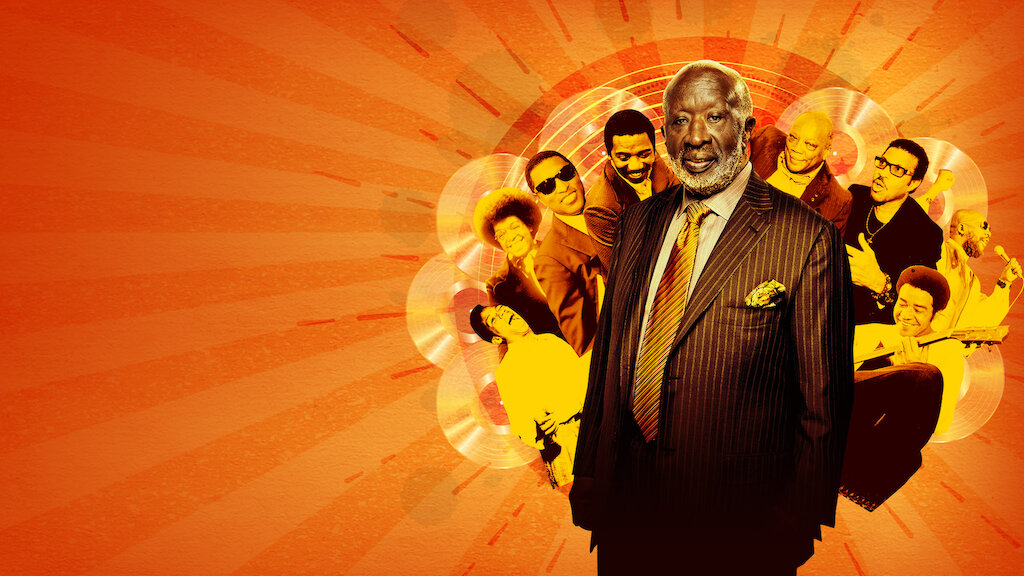
"Wear many hats but design all of them"

It’s a bank holiday, and I decided to do something for me instead of work. I chose to rewatch The Black Godfather on Netflix.
The documentary tells the story of Clarence Avant. As those who knew him shared, it’s hard to pinpoint exactly what he does, but one thing they all agree on is that he is a connector and someone who was always ready to solve a problem.
Sadly, Mr Avant passed away a couple of weeks ago. I can only imagine the last couple of years had been hard for him, especially after an intruder entered his family home and murdered his wife of over five decades, Jacqueline.
Watching it this time around, knowing all that would and has transpired, the documentary landed differently, and I started to think about the lessons that could be learnt.
1. Life is about numbers…
This was Mr Avant’s favourite phrase. Though it wasn’t all about money, it definitely played a factor. It was interesting to me that he asked a manager/agent to leave the room when he was speaking to Jimmy Jam and Terry Lewis. At first, when I heard she was a woman, I thought it was a misogyny thing. Turns out I was totally wrong. He wanted to speak to them because she hadn’t asked for a high enough offer on their behalf, and he wanted to school them on what they should be getting. He made sure no one left money on the table.
2. …but it’s not all about the numbers
Clarence Avant’s life was about service and the advancement of anyone who came into contact with him. He knew everyone, and if he could make a connection – and he liked you – he would. It wasn’t about what he could get out of it. He wanted to see people do well. I can relate to that.
3. Know yourself…
He was unwaveringly himself. He wasn’t afraid to speak his truth and never cowered to anyone. He was who he was, and people accepted – and more importantly – trusted him because of that. He didn’t filter and made no apologies for that. I can only imagine the personal peace that gives you.
4. …and be different
Often the only Black man in the room, Mr Avant played to his strengths and saw opportunities in doing things differently, like being one of the few if not only black-led record labels to sign and promote white artists in the 60s. There weren’t many barriers, if any, as far as he was concerned. Not where he was from, his lack of formal education, or his race were ever going to stop him from becoming a success.
5. Reputation can unlock or close doors
What’s consistent is that everyone knew his name from executives to several future presidents (he was instrumental in their journies). I’m sure he had enemies, but the point is you said his name, and people already knew what level you were working on. His reputation preceeded him. This is why your personal brand is so important. Whilst it might feel like jargon, the principle is unquestionable: how you treat people and present yourself will ultimately influence how you’re treated.
6. Relationships matter
Clarence Avant in himself was an entity, but he understood people and the value of relationships. In The Black Godfather, JLo’s manager, Benny Madina, talks about how Mr Avant never charged anyone and is incredulous. But it makes perfect sense to me. When you do without expectation, you’re bound to be blessed at some point. Mr Avant had this experience when his old boss asked him to move to the suburb of Beverly Hills in Los Angeles and paid for his family’s move. When his boss died, he got a call that his debts were forgiven. The same thing happened when his venture into radio failed, leaving him almost bankrupt. People came to his aid. “I have friends” is how he attributes it.
7. You don’t have to be front and centre to make an impact
Unless you were in his orbit or industry, I doubt people knew who Clarence Avant was. I know he wouldn’t have popped up in my part of South London had it not been for Netflix. Mr Avant’s story proves what has always been my point: the people behind ‘the people’ are usually far more interesting. At least to me.
They might not be performing to hundreds of thousands of people every night, for example, but without those people its likely that your favourite performers wouldn’t exist or achieve all they do.
8. Failure happens. Get up and start again.
This might sound a bit weird, but hearing that a man like Clarence Avant could fail is massively comforting to me. Might be the African in me, but failure impacts hard and is a lot to swallow. It’s taking time to realise that it’s natural and says nothing about who you are as a person.
His experience echoes Tina Turner’s life when she has to start again after leaving Ike Turner. She hadn’t failed, but she had to start again in an industry that favours the young (and white, to be fair). They’re both examples of the fact that failure is never the end and success isn’t closed off to you because of it.
9. Watch where you invest
This came from something a contributor to the documentary said where he talks about Mr. Avant’s generosity when giving his time, his connections, etc. He talks about how people who had experienced Mr. Avant always felt buoyed by a purpose to do the same for others. Those who didn’t were a wasted investment. This is a lesson where you give freely, but you also have to watch whose coming to take but not reciprocate or pay things forward. Fuelling them is dead energy.
Much like Beyonce’s Coachella Netflix special, I know that I’ll come back to The Black Godfather repeatedly when I need a boost or a reminder of what’s possible. You can’t help but be inspired and hopeful when you see people that look like you hone their craft and succeed.
At a time where I’m evaluating what comes next, I appreciated this documentary for different reasons than the first couple of times I watched it. Whilst I wish I had had the opportunity to experience the Avant effect personally, the lessons I have and will continue to see in the future is a blessing.
My deepest and sincerest condolences to his children and all those who loved him.